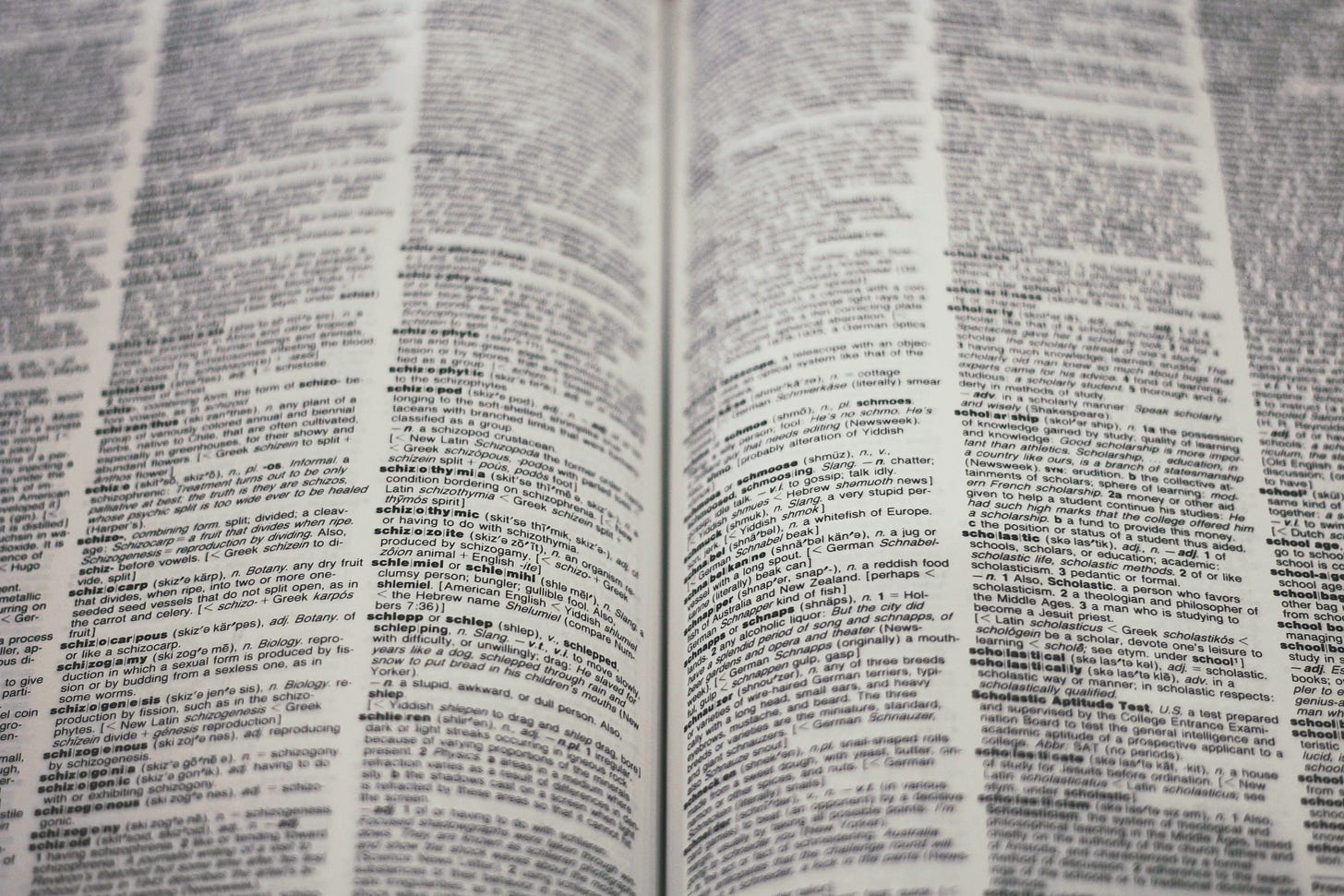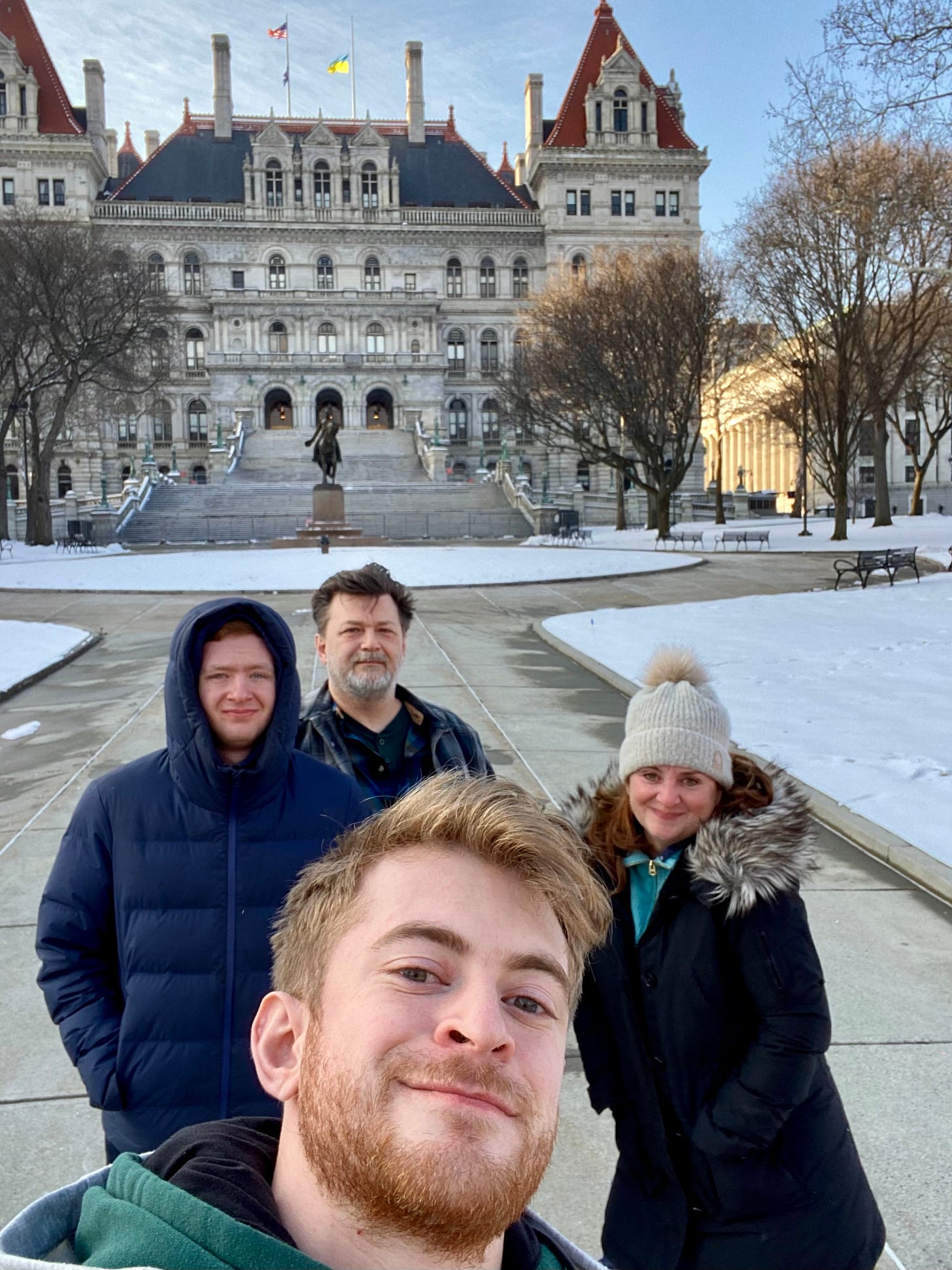The Need for a Better Disability Vocabulary
After Improving the Terminology, We Can Provide More Targeted Services
Photo by Joshua Hoehne on Unsplash
A few years ago, I had a bit of a falling out with a dear friend. Both of us have kids with disabilities, though with different strengths and weaknesses. She felt that my son and I were snobby for not attending an after-school program that worked for her son. We’ve since made our peace, but now I avoid all discussions with her about my son and his education. It’s just too touchy.
People can be disabled and abled in different ways. My son is really good at academic stuff, but is so brutally blunt and immature that he is in serious danger of never being employed. Other people are effortlessly social, but not academic. Still others have physical and health differences. Others have milder social or attentional issues, but still need support. Even though everybody is classified as disabled, everybody is so different from each other than the term is practically useless.
With the huge diversity of people under that disability umbrella, it’s really hard to make a program or policy that works for everyone — somebody will always be bored or overwhelmed or frustrated in a program that is too inclusive. With a broader disability vocabulary, we can not only avoid misunderstandings with friends, but it will facilitate the development of a wider breath of disability programs and services.
Until fifth grade, Ian was in a specialized public school aimed at kids with high functioning autism. It was drew kids from across Northern New Jersey, so they could create a full classroom of kids with milder issues and that could learn in mainstream classrooms for part of the day. When we moved to a new town when Ian was ten, the district put him in the town’s generic autism program, which had a greater variety of students than his old program. I pulled him out of the new town’s autism program after a year, because he was too much of an odd duck there.
Again, Ian is in a league of his own in his current transition program. There aren’t too many kids who can handle traditional college computer classes, but still require social skill training. When we were shopping around for a good program, it would have helped to have programs clearly identify their focus: intellectual and developmental disabilities, social and emotional challenges, physical challenges, and so on. Instead, parents have to ask the right questions or hire an expensive consultant to bust through opaque online program descriptions.
Even the term “autism” is useless when developing educational and training programs, because autistic people are so different from each other. My son’s needs, which are real and significant, are very different from another autistic student with significant behavioral and communication issues. Neither form of autism is the default or should be prioritized in any way. Both types of autism are equally needy and require very different forms of intervention.
Ian’s early experience in a regional autism program has really helped shape my views on special education. With such a great diversity of disabilities, it’s impossible for any one school district in one tiny town to meet the needs of all those students. Regional programs that focus on specific populations would be both cost-efficient and achieve the best results. And to get to that goal, we have to be more specific in our disability language and be a little less inclusive.
LINKS
We just came back from a family ski trip. Ian’s flat feet refused to fit in a ski boot. (Are flat feet an autism thing? Not sure.) But we still had lots of fun anyway. Some pictures, including our new state capitol building project.
I wrote about study skill education in my primary newsletter.
58% of NYC’s youngest children don’t receive all of their Early Intervention services
‘Wasted money’: How career training companies scoop up federal funds with little oversight




You are right! But, at present, it's a pipe dream. In New Jersey (as you know) public and private schools don't want to get more specific. If educators (who are not private evaluators or tutors) actually recognize the disability, they might be legally required to address it and show progress. The only thing worse to schools than properly identifying a disability is quantitative data and meaningful IEP goals. Why identify dyslexia when you can call it an SDL, toss a kid in a room, check a legal box, keep the state/federal money, then let the parent pay a lawyer to enforce the toothless laws. Until Endrew F. works it's way back down to the local level and the NJDOE swamp is drained, I'm not sure more specific disability labels will change anything. I hope I am wrong.
Good point--the reason many school districts do not do a very good job with studients with disabilities is cost--as well as finding and retaining staff. One of the ways to help is, as you suggest, a regional approach. St Louis County, Missouri, where I live, has such a regional structure--it provides services for students in their local school districts and operates a variety of standalone schools for various populations. It's not perfect--integrating the regular school district and special school district folks depends a great deal on the personalities of the folks on both sides of the table, but it works pretty well. The St Louis City public schools are their own district and are considered their own county, so they are not included in this program, though there is some discussion of combining them. The special school district is also its own taxing authority, so parts of everyone's real estate and personal property taxes go to it--as well as the local school districts. Here's a link to their website: https://www.ssdmo.org/